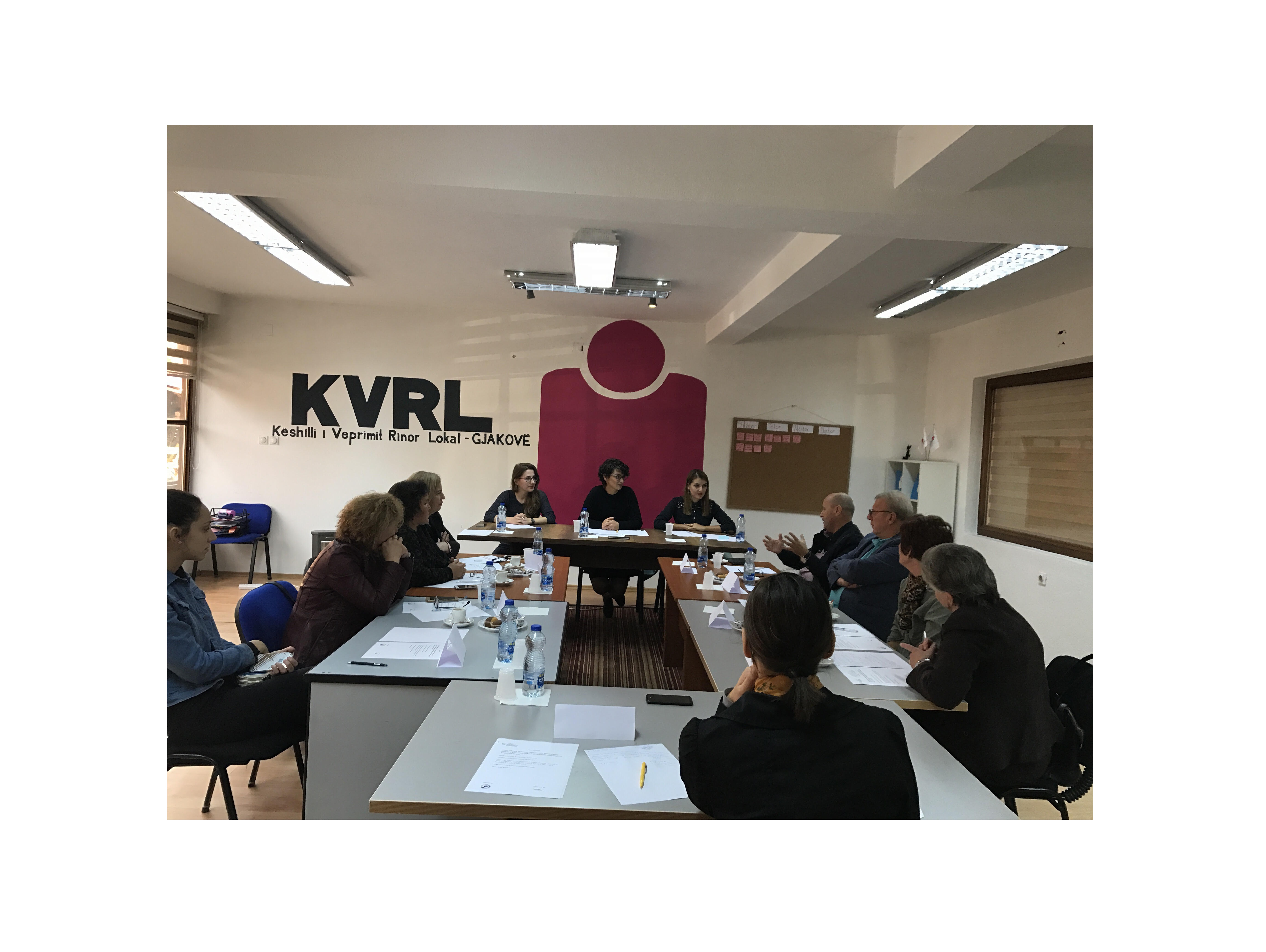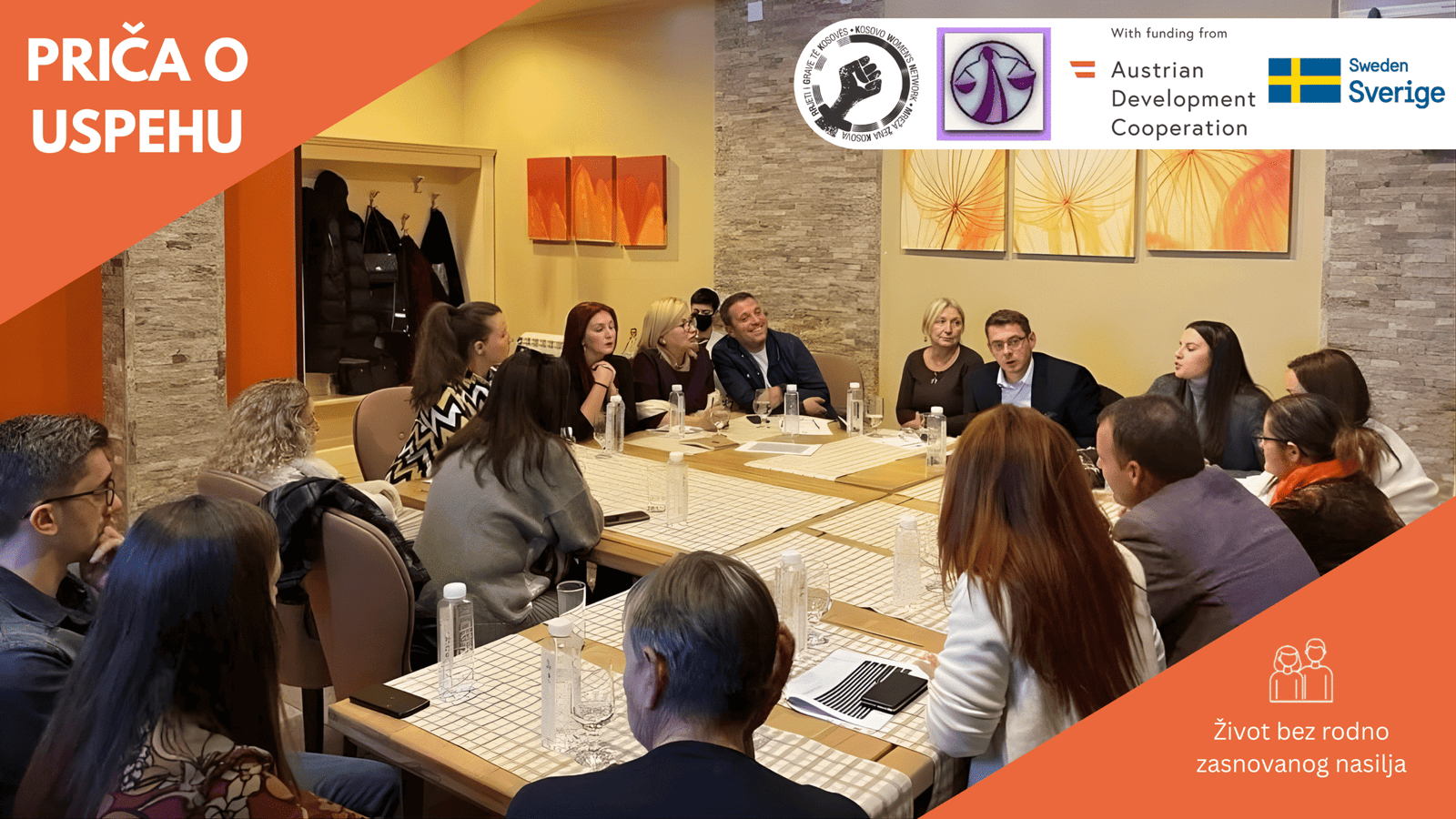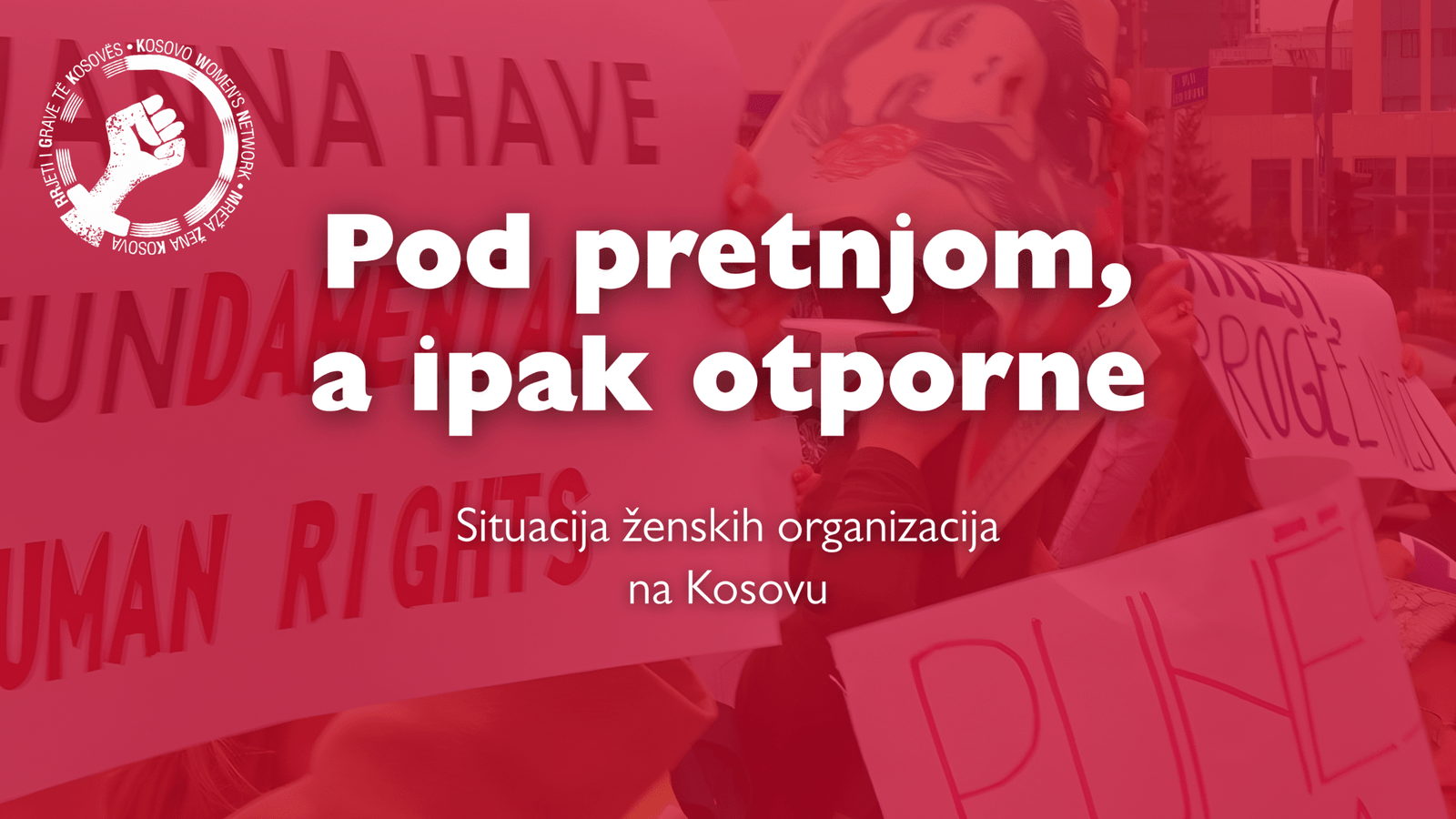On 30 September, Together in Progress Organization organized a roundtable meeting on “What is the hitherto lacking mechanism that would provide stability to women farmers of Municipality of Gjakova and Namasgjah area?”, attended by farmer women, the director of Department of Agriculture, Gjakova Municipality, representatives from Çabrati company and civil society, and representatives of Kosovo Women’s Network.
This activity was organized under the project titled “From Mother–Advocating for women farmers of Gjakova Municipality”.
At first, Ms. Arbresha Maloku, director of the organization, delivered a short presentation on the purpose of the project in general, which is the economic empowerment of farmer women of rural areas of this Municipality by making the area of Namasgjah operational again and gaining supportive institutional and business partners.
Based on the 2016 survey conducted by Kosovo Agency of Statistics, the share of work force in the entire population in working age is 35.2%. More men (38.6%) than women (12.2%) are employed, with the latter percentage being one of the lowest in the world. Based on these results, the inactive work force is very high (64.8%), particularly in women (82.6%) compared to men (47.2%). Based on these statistical data, it turns out that the women’s position in our society is not favorable at all. In addition to facing unemployment, those few women who deal with any agricultural activity have had no adequate conditions provided by the public institutions/municipality and for this reason, many women stop being involved in business activities.
The director of Agriculture in Gjakova Municipality, Mr. Bekim Ermeni, stressed that Gjakova Municipality allocates 500 thousand Euro in subsidies for farmers of this municipality directly benefiting 2000 women and indirectly benefiting 5000 women. He also added that during 2015-2017 approximately 200 women farmers received subsidies.
He highlighted that one of the issues why women benefit less than men is the low number of properties registered in their name. Furthermore, Mr. Ermeni added that, “in order to encourage women to apply for subsidy and engage themselves more in agriculture, the Municipality has in place the Regulation on granting subsidies, which stipulates that women and minorities shall each be given 5 points more.”
Women farmers stressed that what they find to be a problem is the failure to secure the market for selling their products. As a lack of such market, many of their products end up rotten because of not being sold. One of the women stated: “I do not consider the open market as reasonable, because the purchase prices of products are very low”.
While Namasgjah area used to be the only place where people could make purchases and sales, for numerous traders, mini markets pose a problem, although to those living in cities, mini markets are easily reachable for everyone.
At the end of the meeting, it was recommended that the civil society help by requesting the banks to lower their interest rate on loans taken out for agricultural purposes.
This project was supported by the Kosovo Women’s Fund (KWF) of the Kosovo Women’s Network (KWN) and funded by the Austrian Development Agency (ADA).







